1. Park Overnight at Rest Stops
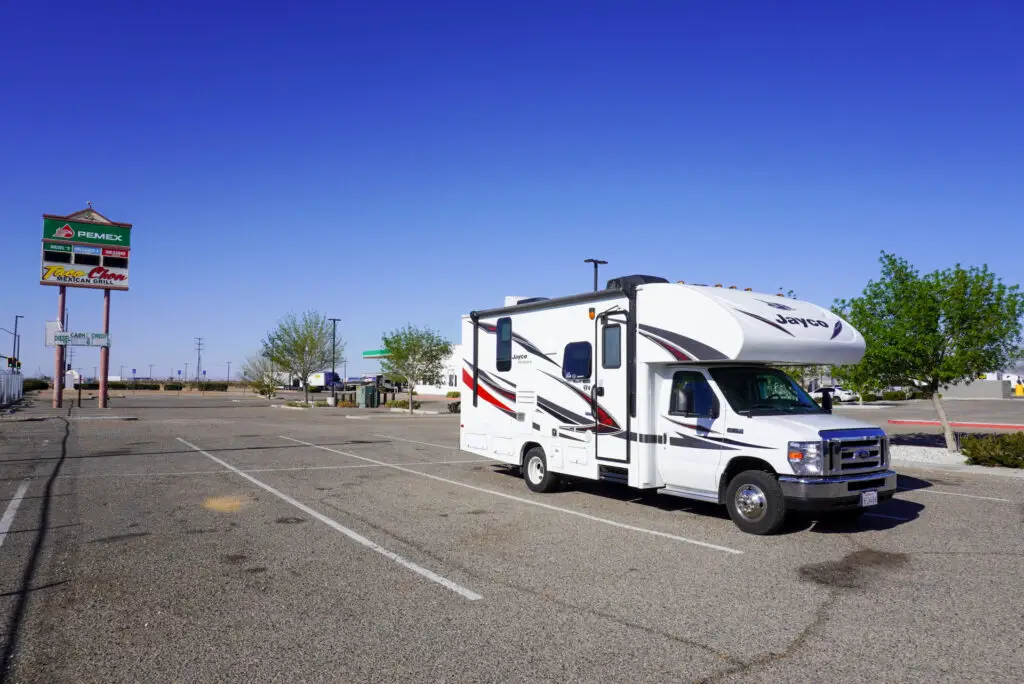
While many RVers assume highway rest areas are fair game for overnight parking, that’s not true in every state. According to the Federal Highway Administration, states like North Carolina, Virginia, and Maryland prohibit sleeping in rest stops beyond a short break. Still, countless RVers doze off for the night in these areas without consequence. Enforcement varies wildly, depending on location and time of day.
Most drivers bank on the assumption that a few hours of quiet sleep won’t attract attention. In reality, signage may forbid extended stays entirely. Local authorities can issue tickets or ask RVers to move, especially if rest stops are busy. The legality changes at state lines, but the behavior remains common.
2. Dump Gray Water on the Ground
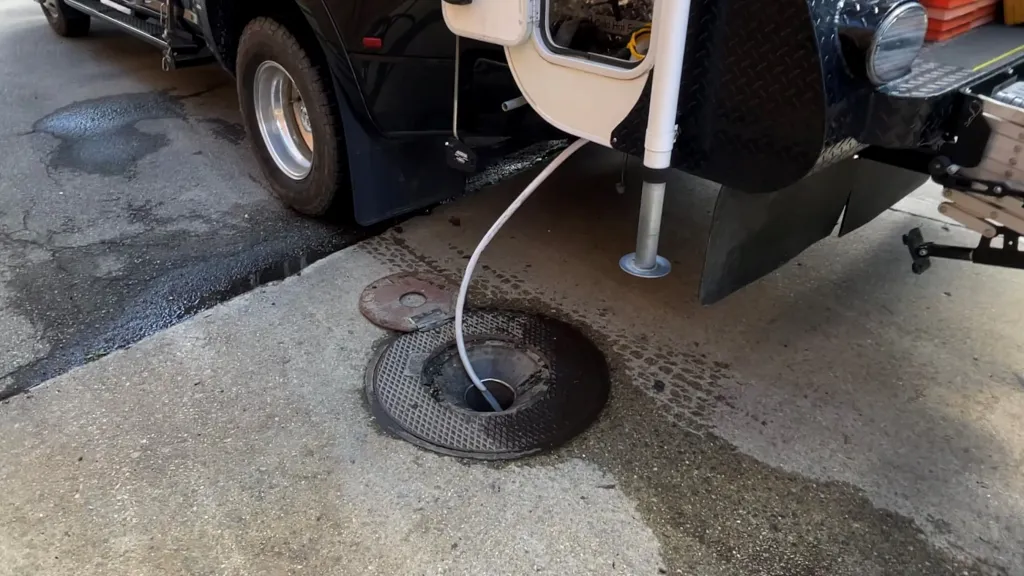
Disposing of gray water—used sink and shower water—directly onto the ground is illegal in most states, even if it looks harmless. The EPA classifies gray water as wastewater that may contain soap, grease, food particles, and chemicals, which can contaminate soil and waterways. Despite this, some RVers still dump gray tanks in remote or rural areas to avoid full dump stations. It’s easy, but it’s not lawful.
Fines for this practice can be steep if caught, especially in national parks or BLM land. Still, enforcement is difficult unless someone is reported or a ranger spots it happening. With increasing scrutiny of environmental impact, officials are cracking down more often. Even so, the gray area of gray water remains a widely ignored rule.
3. Tow Without a Special Endorsement
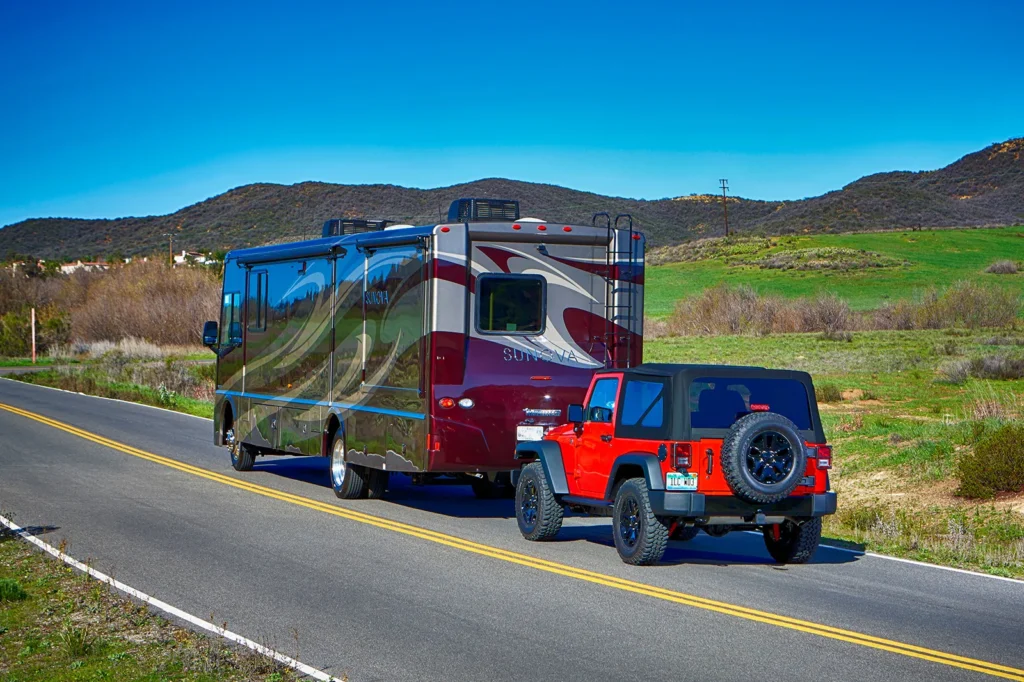
Some RVers tow an extra vehicle or trailer without realizing that certain setups require special licenses or endorsements. As noted by Weigh Safe, states like California and New York have weight limits that trigger commercial or special-class license requirements when exceeded. Many RVers don’t weigh their rigs and simply hit the road assuming their regular license covers it. That’s not always the case—and ignorance isn’t a defense.
If you’re involved in an accident or pulled over for a safety check, lack of proper licensing can lead to fines or insurance issues. Enforcement isn’t consistent, but the legal requirement is real. Some states also require brake systems or specific safety equipment when towing. It’s one of those regulations most drivers overlook until there’s a problem.
4. Camp for Free on Private Land
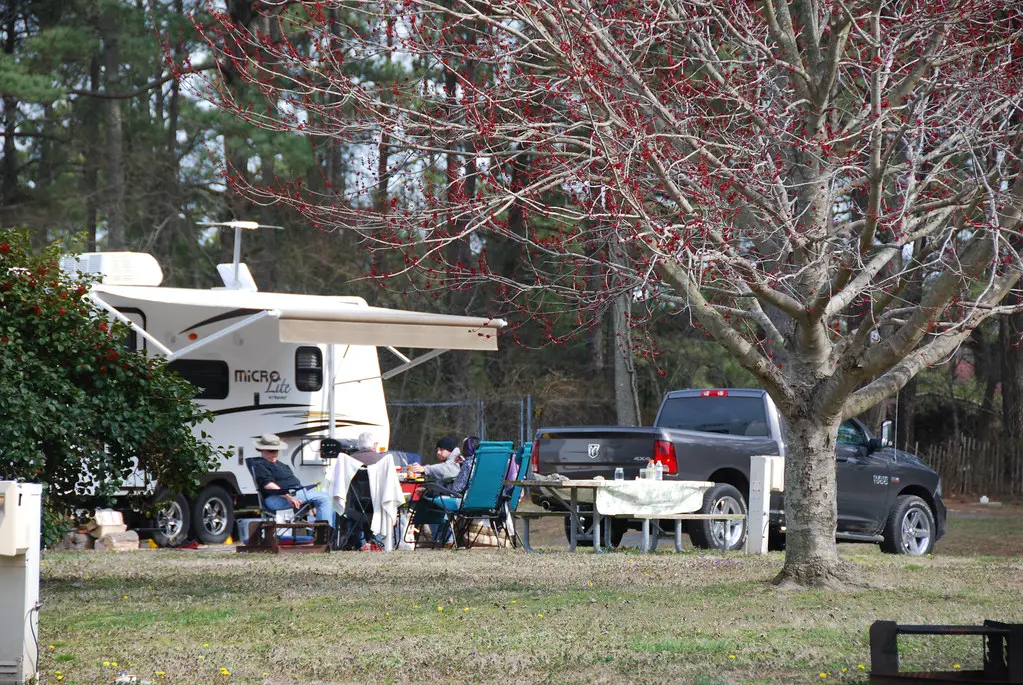
While boondocking is a popular way to avoid campground fees, parking on private land without explicit permission is considered trespassing. RV.com notes that rural areas often attract stealth campers who assume nobody will notice or care. Technically, this violates property laws—even if the land appears unused or unmarked. Still, many RVers take the risk, especially for one-night stops.
Some landowners are lenient, while others may call law enforcement. Citations or forced removal are common responses when campers are discovered. Even when no confrontation happens, it remains a legal gray zone many travelers quietly exploit. Responsible RVers always try to ask first—but not everyone does.
5. Run Generators Late at Night
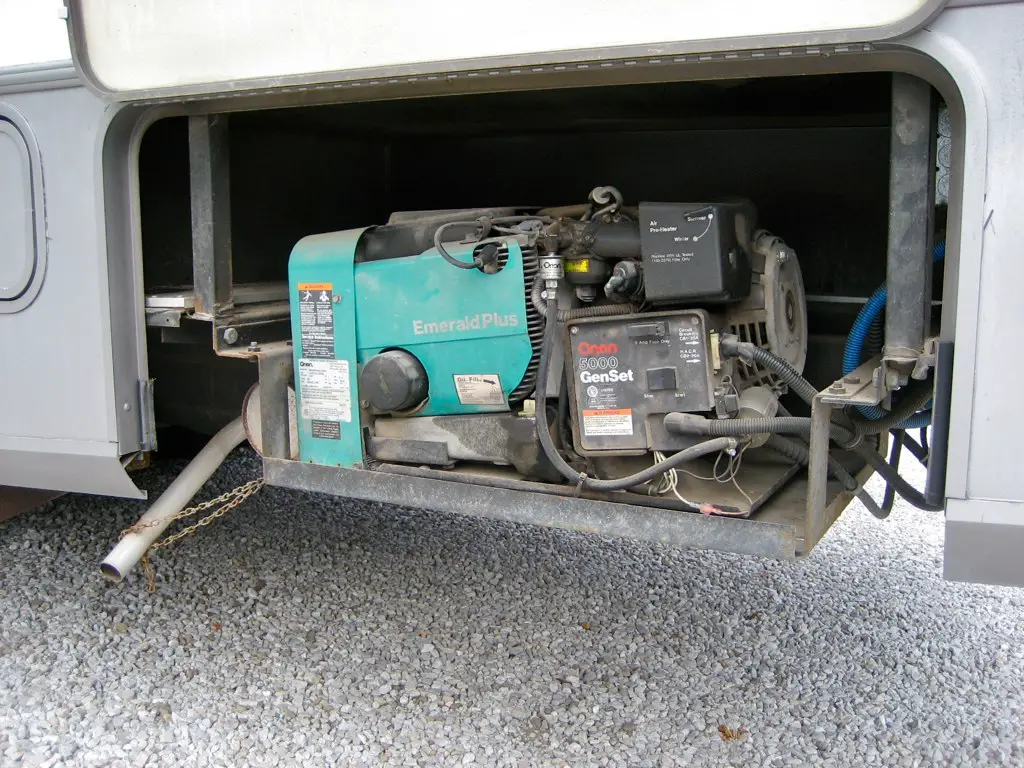
Quiet hours are enforced in most campgrounds and public lands, typically starting around 10 p.m. Running a generator past those hours isn’t just frowned upon—it’s often against park policy or local ordinances. Yet plenty of RVers push their luck, especially when temperatures spike or batteries are running low. The low hum of a generator can disturb other campers and wildlife alike.
Camp hosts and rangers may issue warnings, but not all sites enforce the rule consistently. Some boondockers assume isolation gives them a free pass. Others genuinely forget or think they’re being discreet. Regardless, late-night generator use is technically banned in many places.
6. Exceed Stay Limits on Public Land
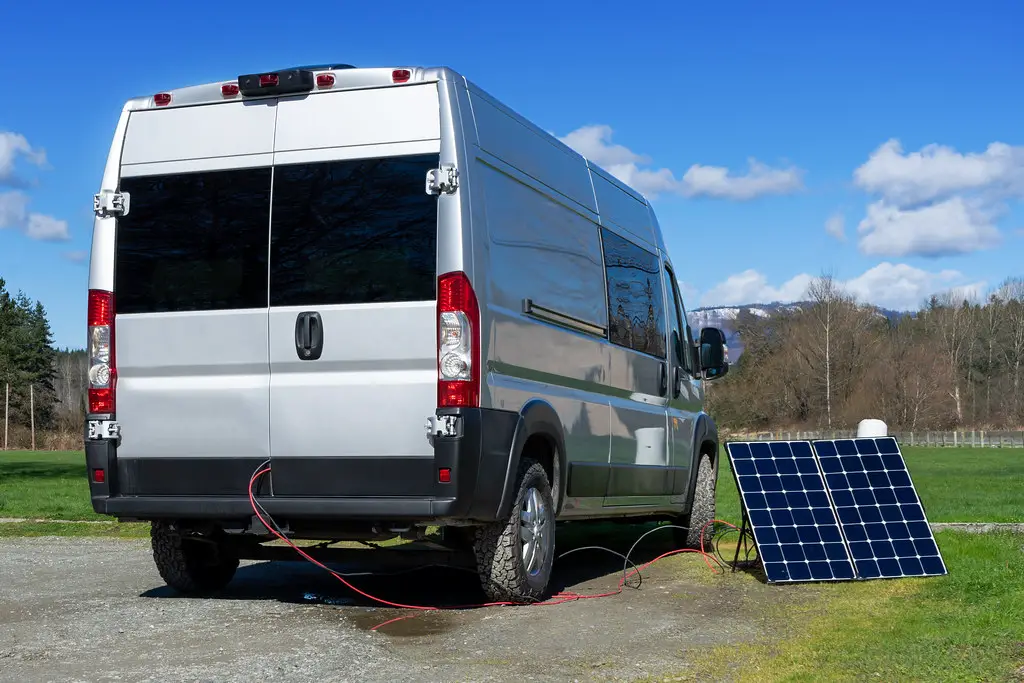
National forests, BLM land, and other public zones often have stay limits—usually 14 days—designed to prevent long-term squatting. However, it’s common for RVers to overstay their welcome, especially in remote areas with little oversight. Some simply move their RV a short distance, thinking that’s enough to reset the clock. Officially, it isn’t.
Rangers may ticket repeat offenders or mark tires to track movement. Still, enforcement varies by region and available staff. Many RVers rely on the assumption that no one’s checking. But extended stays can draw scrutiny if land is heavily trafficked.
7. Flush Tanks Directly Into Storm Drains
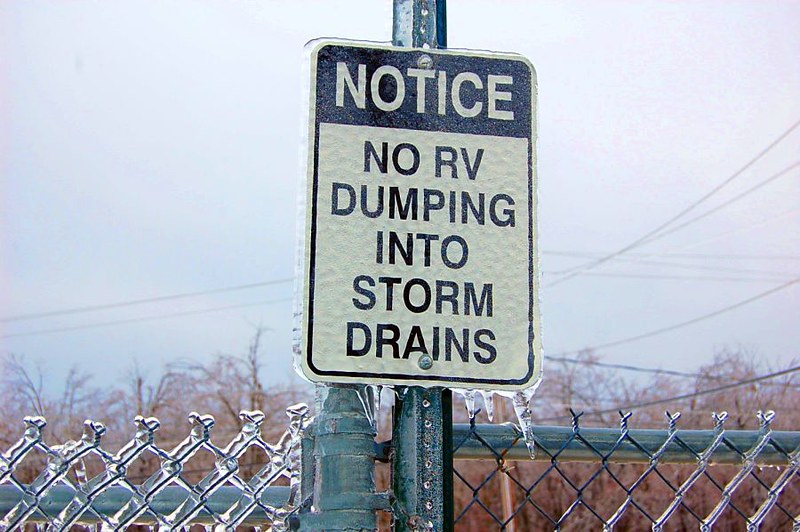
It’s illegal in every state to dump black or gray water into storm drains, which flow directly into rivers, lakes, or oceans. Still, some RVers do it, especially when they can’t find a designated dump station. The practice is highly unsanitary and dangerous for local ecosystems. Despite the risks, the anonymity of urban parking encourages some to take shortcuts.
This kind of dumping is often captured on security cameras or noticed by nearby residents. Fines and citations can be severe, and it may even constitute a criminal offense. Environmental agencies are increasing patrols in urban areas. Even seasoned travelers sometimes admit they’ve made this mistake once—though few will do it again.
8. Camp in Store Parking Lots Without Permission
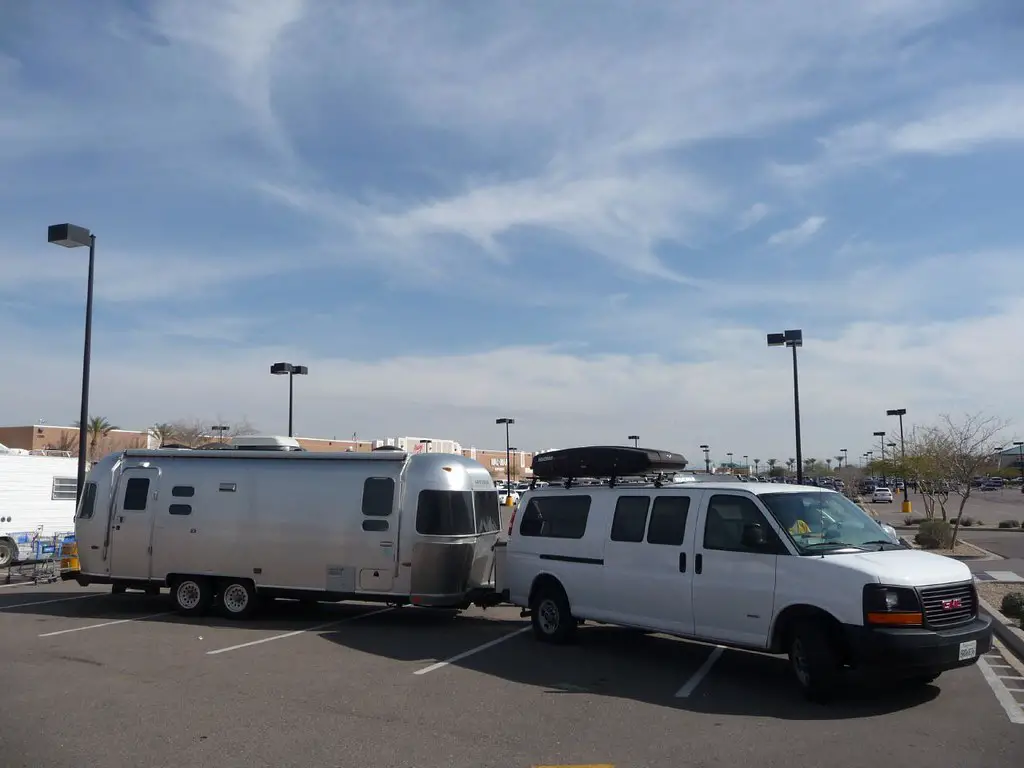
Walmart, Cracker Barrel, and Cabela’s are popular overnight stops—but parking overnight without manager approval is often against store policy. Many RVers assume that a wide-open lot equals permission, especially if they’ve done it elsewhere before. But rules vary by location, and some cities have passed ordinances banning overnight stays in commercial lots.
Security or local police may ask you to leave, and in some cases, issue a citation. Despite this, countless travelers roll in after dark and leave early, banking on not being noticed. It’s a gamble most people take without issue—but it’s still technically not allowed.
9. Ride in a Towed Trailer
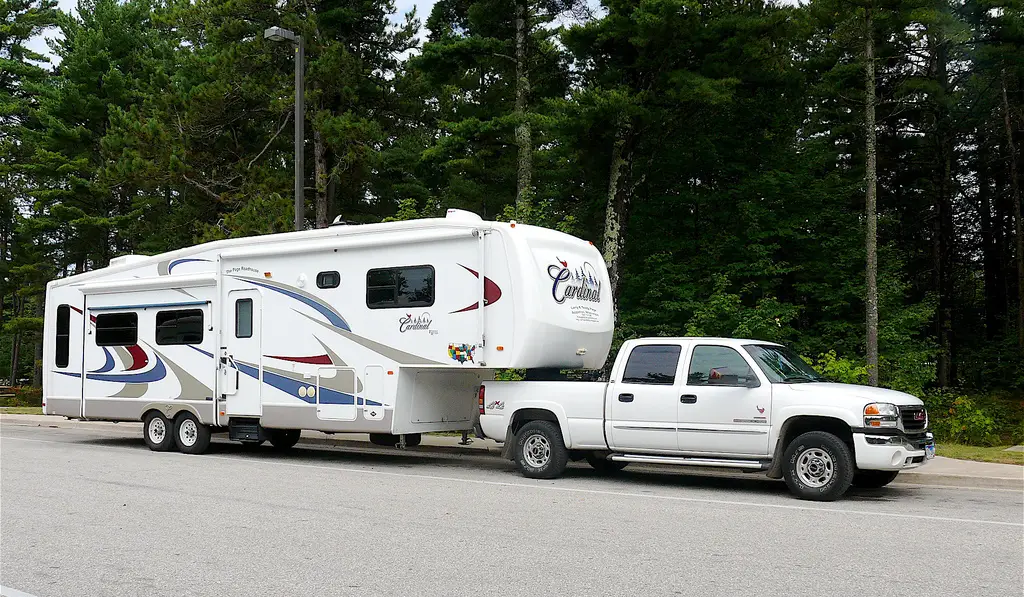
In many states, riding inside a towed RV or travel trailer while it’s moving is illegal. It’s a serious safety concern, especially in accidents. Still, some RVers do it on short rural drives or when switching drivers. They often justify it with phrases like “just this once” or “we’ll go slow.”
Laws vary by state, but in most, only fifth-wheel trailers equipped with communication systems are legal for passengers. Enforcement is rare unless there’s an incident. Regardless, the risk is high—and the legal consequences can be serious. It remains one of the riskiest—and most quietly ignored—laws on the road.
10. Let Pets Roam Unrestrained
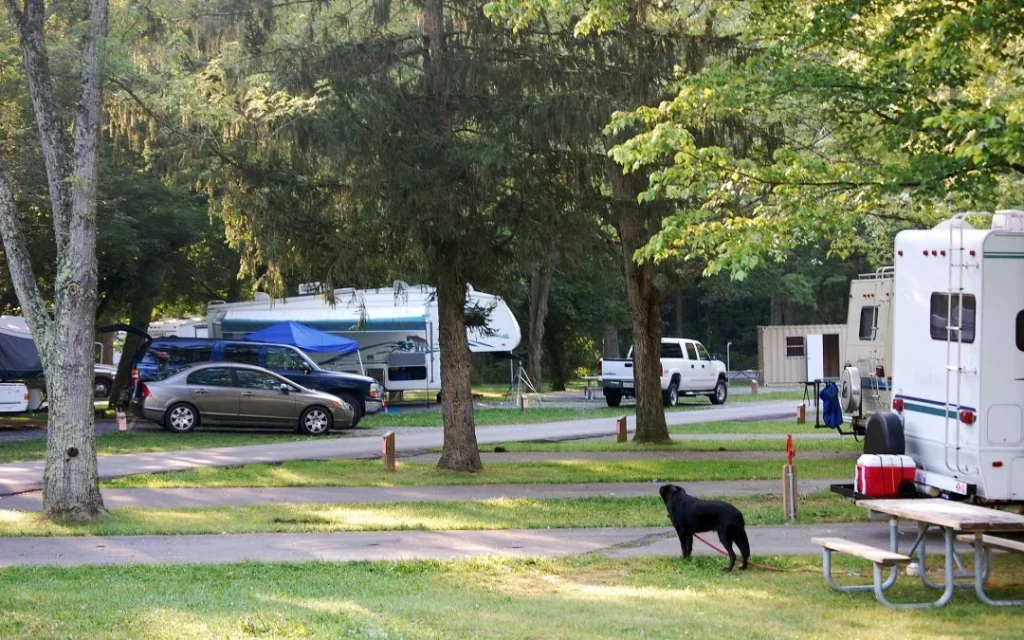
Campground rules and national park guidelines usually require pets to be leashed or confined at all times. Still, many RVers allow dogs to roam or play off-leash when no one seems to be watching. It may seem harmless, especially in open spaces, but it’s still a violation of the rules. Fines, warnings, or even bans from certain parks can result.
Unrestrained pets can also disturb wildlife or other campers. In high-traffic areas, rangers may be more likely to enforce the rule. Most travelers understand the risk but take their chances when they think it’s safe. Even well-behaved pets are supposed to follow the same guidelines.
11. Use Natural Hot Springs as Bath Tubs
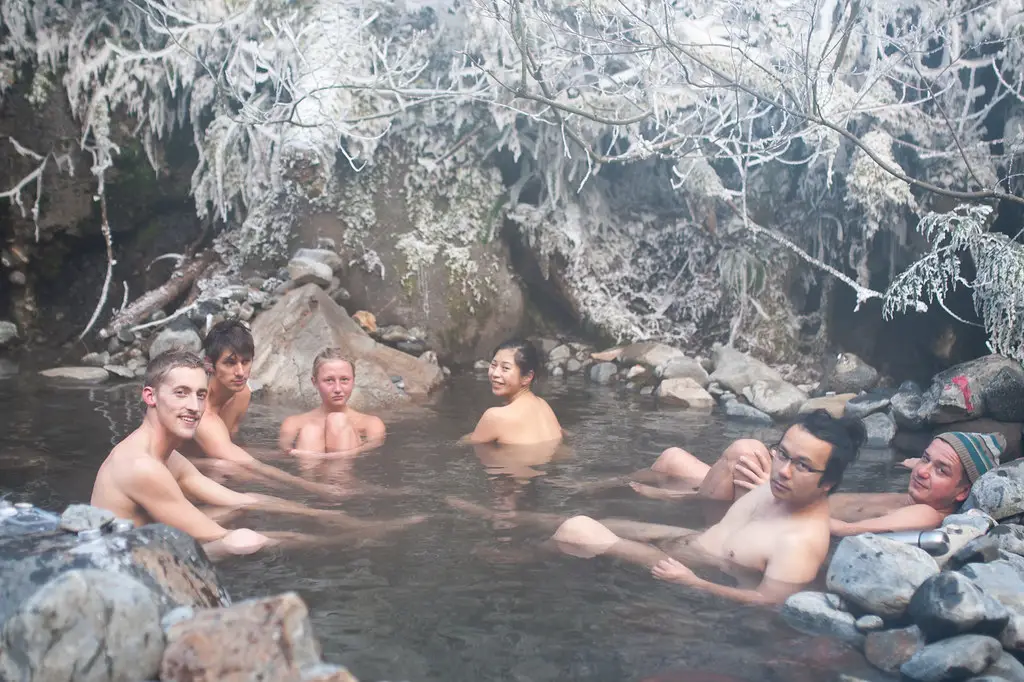
RVers love soaking in natural springs—but washing up with soap or shampoo in them is illegal in most states. These springs are protected water sources, and contaminants from personal hygiene products can damage fragile ecosystems. Still, some people use them for rinsing off or even full baths. It’s an unspoken practice that park rangers frequently warn against.
Even biodegradable soap doesn’t break down instantly in natural water. Fines or citations may be issued if someone’s caught, especially in monitored hot spring areas. Though some RVers believe it’s harmless, authorities treat it as pollution. Expect stricter enforcement in the years ahead.
12. Dump Trash in Park Fire Rings
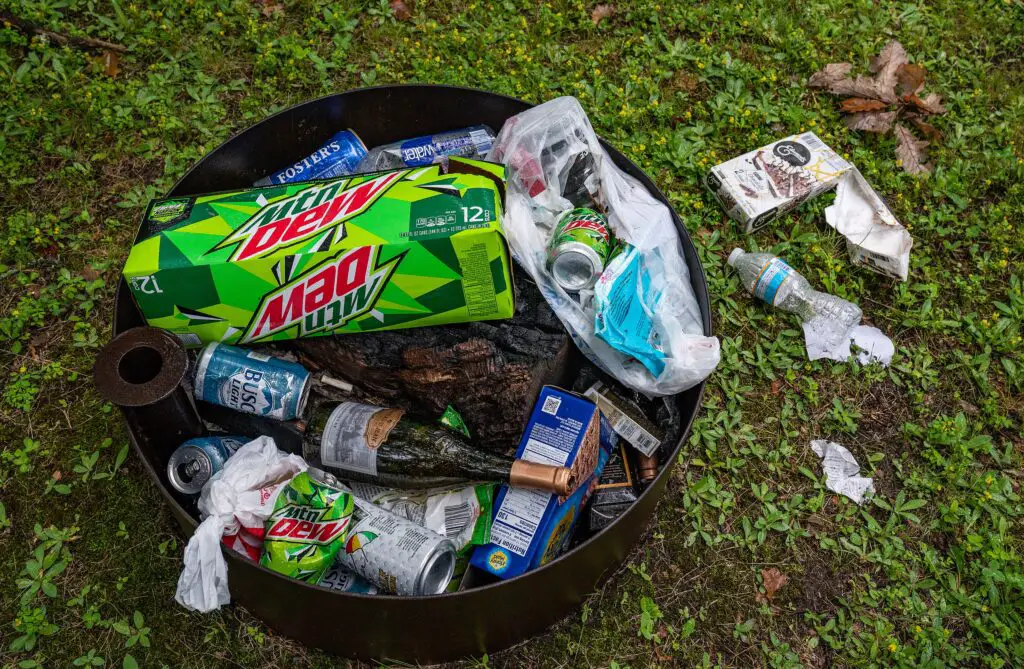
Using fire rings to dispose of garbage is not only illegal but also dangerous and disrespectful. Still, some RVers leave cans, wrappers, and food waste behind, assuming the next fire will burn it all away. In reality, these items don’t always combust completely and can release toxic fumes. Park rangers and hosts constantly clean up after these violations.
Burned trash also attracts animals, including bears in some regions. Fines are issued when campers are caught, especially in heavily visited areas. Yet it remains one of the most common and careless campground offenses. Education efforts are increasing, but behavior has been slow to change.
13. Ignore Local Fire Bans
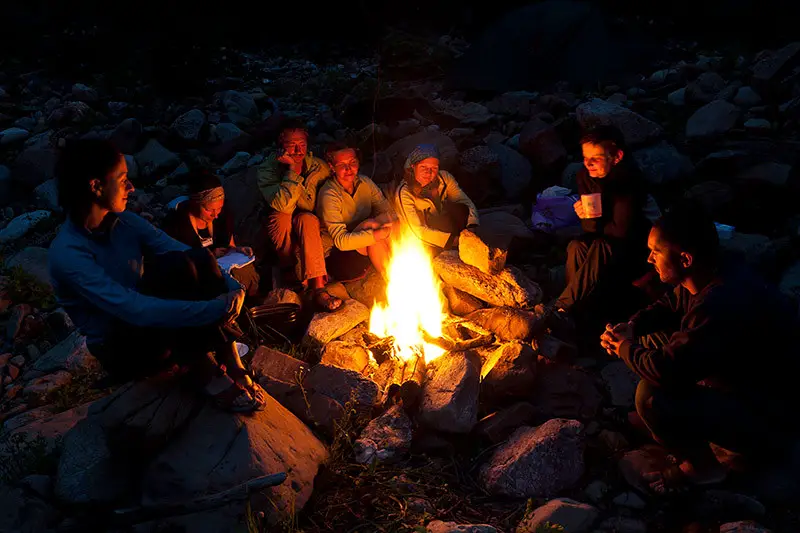
During wildfire season, many areas issue strict fire bans—including for grills and propane fire pits. But some RVers light up anyway, citing windless nights or “just a quick meal.” Breaking a fire ban is a serious offense that can result in large fines or even criminal charges. Still, the rule is routinely ignored when no one’s watching.
Campground staff often rely on neighbors to report violations. One accidental flare-up can have devastating consequences for public land. Officials are stepping up patrols and using drones in some areas to spot unauthorized fires. The risks are high, but many still treat it as a low-stakes gamble.
14. Camp Outside Designated Areas in National Parks
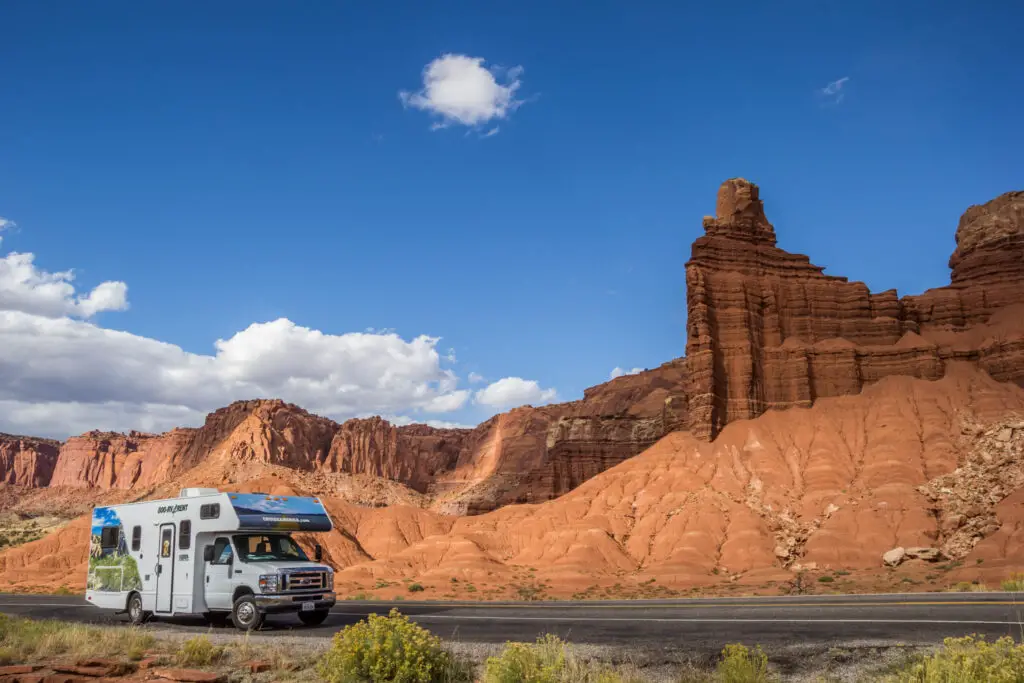
Every national park has specific areas for RV camping, but that doesn’t stop people from parking in overflow lots, scenic pullouts, or remote trailheads overnight. These spots are often clearly marked “no overnight parking,” yet many ignore the signs if they arrive late or are desperate for a place to sleep. Rangers typically patrol these areas early in the morning, issuing warnings or fines. Even so, it’s a habit that’s become ingrained in the RV community.
With national park attendance at record highs, unauthorized camping is creating strain on fragile environments. It also raises safety concerns for both travelers and wildlife. As rules get stricter and enforcement increases, this common workaround may soon carry harsher consequences. But for now, many RVers continue to treat “no camping” as a suggestion, not a rule.
15. Ignore Local Fire Bans
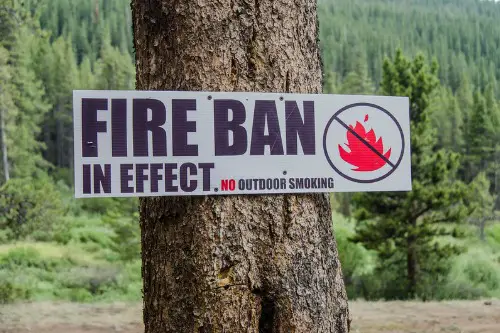
During wildfire season, many areas issue strict fire bans—including for grills and propane fire pits. But some RVers light up anyway, citing windless nights or “just a quick meal.” Breaking a fire ban is a serious offense that can result in large fines or even criminal charges. Still, the rule is routinely ignored when no one’s watching.
Campground staff often rely on neighbors to report violations. One accidental flare-up can have devastating consequences for public land. Officials are stepping up patrols and using drones in some areas to spot unauthorized fires. The risks are high, but many still treat it as a low-stakes gamble.
16. Camp Outside Designated Areas in National Parks
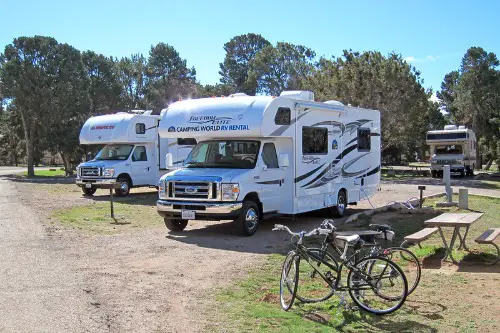
Every national park has specific areas for RV camping, but that doesn’t stop people from parking in overflow lots, scenic pullouts, or remote trailheads overnight. These spots are often clearly marked “no overnight parking,” yet many ignore the signs if they arrive late or are desperate for a place to sleep. Rangers typically patrol these areas early in the morning, issuing warnings or fines. Even so, it’s a habit that’s become ingrained in the RV community.
With national park attendance at record highs, unauthorized camping is creating strain on fragile environments. It also raises safety concerns for both travelers and wildlife. As rules get stricter and enforcement increases, this common workaround may soon carry harsher consequences. But for now, many RVers continue to treat “no camping” as a suggestion, not a rule.
17. Use Solar Panels Without Proper Permits
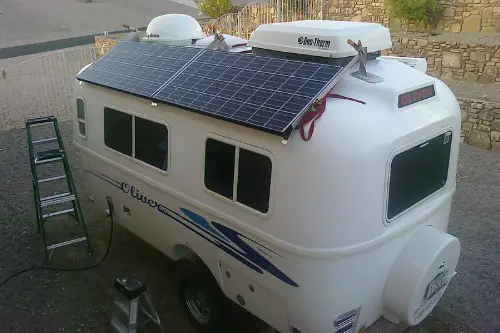
In many areas, installing solar panels on an RV requires permits or compliance with local building codes. Some RVers skip this step, assuming their setup is small and harmless. However, unpermitted solar installations can violate zoning laws or safety regulations. This is especially true in campgrounds or public lands with strict guidelines.
Fines for unpermitted solar setups are rare but possible, especially if the installation causes damage or poses a hazard. Many RVers get away with it because enforcement is inconsistent. Still, the legal requirement exists, even if it’s widely overlooked. It’s one of those rules that only comes up when something goes wrong.
18. Park on Residential Streets Without Permission
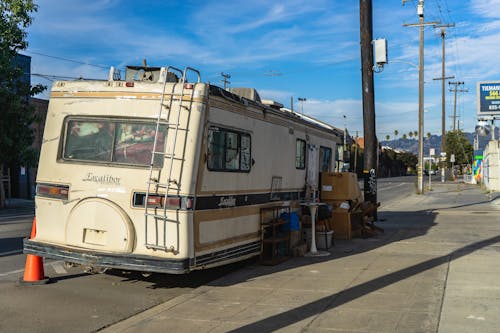
Cities and towns often have ordinances prohibiting overnight RV parking on residential streets. Many RVers ignore these rules, especially when they’re visiting friends or family. They assume that as long as they’re quiet and leave early, no one will complain. But neighbors or local authorities may report the violation.
Citations or towing can result if the RV is spotted overnight. Some areas have specific rules about vehicle size or duration of parking. Despite the risks, many RVers take their chances, especially in suburban neighborhoods. It’s a common practice that’s technically illegal in many places.
19. Bypass Weigh Stations
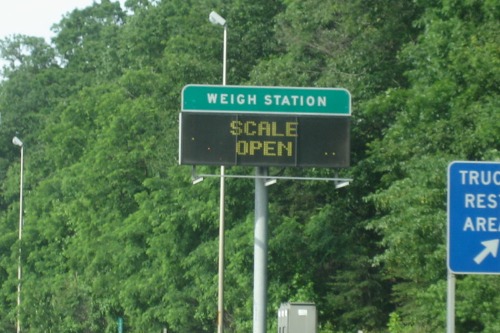
Commercial vehicles are required to stop at weigh stations, but some RVers towing heavy trailers or motorhomes also fall into this category. Many drivers bypass these stations, assuming RVs are exempt. However, in some states, vehicles over a certain weight must stop, regardless of their classification.
Fines for skipping weigh stations can be hefty, especially if the RV is found to be overweight. Enforcement is spotty, but DOT officers can pull over vehicles for inspection. It’s a rule that many RVers overlook until they’re caught. Still, the legal obligation remains, even if it’s widely ignored.
20. Use Off-Road Vehicles in Restricted Areas

Some RVers bring ATVs or dirt bikes to explore off-road trails, but not all areas allow these vehicles. National parks, state forests, and private lands often have strict restrictions. Despite this, some riders take their vehicles into prohibited zones, assuming no one will notice.
Fines for violating off-road vehicle laws can be steep, and damage to protected areas can lead to additional penalties. Enforcement varies, but rangers and landowners are increasingly vigilant. Many RVers take the risk, especially in remote areas. It’s a practice that’s technically illegal but still common.
21. Ignore Noise Ordinances in Quiet Zones
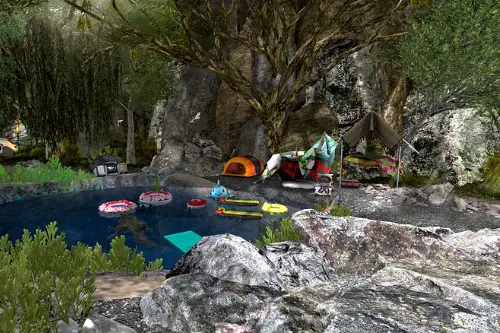
Many campgrounds and public lands have designated quiet zones with strict noise rules. Some RVers ignore these, playing music, running generators, or talking loudly after hours. They assume that being far from others gives them a free pass. But noise can travel far, especially in open spaces.
Camp hosts or rangers may issue warnings or fines for violating noise ordinances. Repeat offenders can even be asked to leave the area. Despite the rules, many RVers push the limits, especially in less-monitored spots. It’s a common but technically illegal habit.
22. Use Drones in No-Fly Zones

Drones are popular among RVers for capturing scenic footage, but many areas have no-fly zones. National parks, wildlife refuges, and private properties often prohibit drone use. Some RVers fly them anyway, assuming they won’t be caught.
Fines for unauthorized drone use can be substantial, especially in protected areas. Enforcement is increasing as drones become more common. Many travelers take the risk, especially in remote locations. It’s a practice that’s technically illegal but widely ignored.
23. Overload RV Storage Compartments
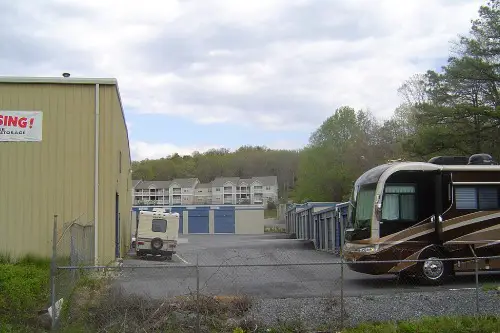
Every RV has weight limits for storage compartments, but many RVers exceed them. Overloading can affect the vehicle’s balance and safety, and it’s technically against the law in some states. Still, travelers often cram in extra gear, assuming it won’t cause problems.
Fines for exceeding weight limits are rare but possible, especially during safety inspections. Overloading also increases the risk of accidents or mechanical failures. Many RVers take their chances, especially on long trips. It’s a common but legally questionable practice.
24. Use Unapproved Propane Tanks

Some RVers use propane tanks that don’t meet safety standards or local regulations. They may be older, damaged, or improperly filled. While this saves money, it’s technically illegal and poses a safety hazard. Many travelers assume no one will check their tanks.
Fines for using unapproved propane tanks are rare but possible, especially during inspections. Safety violations can also void insurance coverage in case of an accident. Despite the risks, some RVers continue to cut corners. It’s a practice that’s both illegal and dangerous.
25. Park in Handicapped Spaces Without a Permit
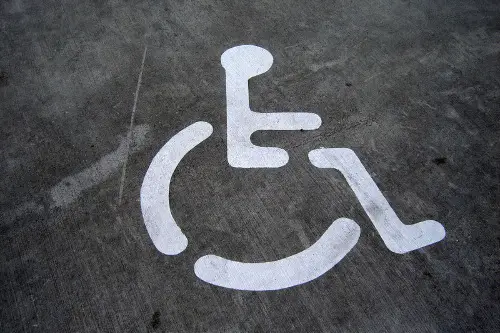
Handicapped parking spaces are reserved for vehicles with proper permits, but some RVers use them anyway. They may justify it with phrases like “just for a minute” or “no one’s around.” But parking in these spots without authorization is illegal in every state.
Fines for misusing handicapped spaces can be steep, and enforcement is common in busy areas. Many RVers take the risk, especially when they’re in a hurry. It’s a practice that’s both illegal and inconsiderate, but it still happens frequently.
26. Leave Campfires Unattended

Campfire safety rules require fires to be fully extinguished before leaving a site, but some RVers walk away without ensuring the flames are out. They may assume the fire will die on its own or that someone else will take care of it. This is not only illegal but also dangerous.
Unattended campfires can lead to wildfires, especially in dry conditions. Fines and citations are common for this violation, and the consequences can be severe. Many RVers take shortcuts, especially when they’re in a rush. It’s a practice that’s both illegal and environmentally harmful.
This post 26 Things You Can’t Legally Do in an RV Anymore (But Everyone Still Does) was first published on Greenhouse Black.
